Eight years ago, Brad Leon was playing college baseball and football and studying public policy at Occidental College in California. Little did he know that the first place he would have an opportunity to put his lessons into practice was almost 2,000 miles away in Memphis.
Leon, 27, is executive director of Teach For America in Memphis, as well as a former teacher. The national program brings top college graduates to teach in underperforming school systems for two years, with a goal of turning them into career teachers and administrators. The catch, if you can call it that: Most of them lack formal certification beyond what Teach For America provides them.
Fifty-four “corps members” from colleges as far flung as Princeton, Minnesota, and Texas were in the first class that came to Memphis in July. Like Leon, many of them had never been to Memphis and knew little about it, but they were intrigued enough to make it one of their top choices among the 28 cities and regions where Teach For America operates.
On a recent Sunday afternoon, with the temperature pushing 100 degrees, about 40 corps members met at Uptown Square to talk to leasing agents, find roommates, figure out how to get to local landmarks, and pick up whatever scuttlebutt they could about their new assignments. For most of them, Memphis City Schools will be their first full-time job. The salary: $37,000.
“I never knew how the city almost died after the [Martin Luther] King assassination,” said Ira Leeds of Atlanta, a 2006 Princeton graduate who will be teaching biology at Kingsbury High School. “You feel like you are part of a city that is really in rebirth.”
Tim Ware, 30, a 1998 graduate of Cedarville University in Ohio, is one of the oldest new teachers. He worked at a hospital and in an inner-city outreach program in Indianapolis after graduation. Ware, who is single, will be teaching history and possibly coaching basketball at Frayser High School.
“I think Indianapolis and Memphis are pretty close to the same,” he said. “You can live comfortably on a teaching salary.”
The benefits of Teach For America for Memphis are twofold. The school system gets an infusion of idealistic young teachers and the city gets 54 of the young college-educated professionals it is competing for with Nashville, Atlanta, Dallas, Charlotte, and other cities. Unlike school “reforms” that embrace the view that public schools are hopelessly broken and should be replaced with charter schools or vouchers to attend private schools, Teach For America believes in undiluted public education. The Hyde Foundation, the Assisi Foundation, and FedEx contributed $782,000 in funding for three years.
“We believe Teach For America is one of the most important initiatives in one of the most important areas of our community: secondary education,” said FedEx chairman and CEO Frederick W. Smith. “It provides truly outstanding talent that will hopefully make a big difference in local school performance.”
Jane Walters, the former Tennessee commissioner of education and Craigmont High School principal for many years, is another fan.
“They’re going to get the world redone if it takes ’til March,” she jokingly said about the idealism of new teachers. She particularly likes the fact that Teach For America wants to improve the public school system from within rather than working around it. The certification issue doesn’t bother Walters, who is now principal at the Grizzlies Academy, a small, downtown high school for students who are at least two grades behind when they finish middle school.
“Common sense needs to take over,” she said. “We need an amazing number of teachers who are passionate about it.”
Studies by the Southern Regional Education Board show that after five years nearly half of new teachers left teaching in the state where they started. Although it has been called a Peace Corps for schools, Teach For America wants corps members to stick around beyond a two-year hitch in the public school backwaters.
“My vision 10 years down the line is hundreds of corps members teaching in the schools and dozens of alumni as principals or running for school board or leaders in the business community,” said Leon. “Of our more than 10,000 alumni, 63 percent are now working full time in education, and 94 percent of them are still working in low-income communities.”
In an interview with the Flyer, Leon talked about his own experience with Teach For America in New Orleans, his impressions of Memphis, and his goals for teachers.
Flyer: How did you come to the program?
Brad Leon: I joined after taking two years off to be a bartender in Southern California. People who know me in Teach For America would be dumbfounded by that because I’m a pretty straight-edged person, but that’s what I did. It was a great job. And one of the sad things, which may be a commentary on education, is I made more per year as a bartender than I did as a teacher in New Orleans. I was making around $36,000 as a bartender, and I believe I made $27,000 my first year as a teacher.
Why New Orleans?
You get to choose where you want to go on your application, and New Orleans was one of my highly preferred sites. I taught at a place called the New Orleans Free School, started in the Sixties by self-proclaimed hippies. The theory was that students shouldn’t have to take certain courses and should sign up for what they wanted to sign up for.
I taught language arts and social studies to seventh- and eighth-graders. The students called me Mr. Brad. We actually didn’t grade our students the first year. We gave written evaluations. My second year, I felt like a piece of American counterculture had died, because the faculty voted to give our students grades. Our principals were devastated that we would do that.
So what was it like?
In eighth grade, students were required to take and pass a standardized test in order to go to the next grade. Only 41 percent of eighth-graders passed before I got there. One of the things I love about Teach For America is this idea of relentless pursuit of results. You are not a missionary. You are going in there to get results for your kids. I had mandatory tutoring for one hour before school and one hour after school.
The big picture came home to me one day when a student was waiting at my car after tutoring. He was a big kid named Thomas, about my size. He was just staring down at his shoes. He said in the saddest voice I’ve ever heard, “Mr. Brad, am I going to pass the LEAP test?”
He wanted to go to Grambling and play in the battle of the bands in the Superdome like his family members had done. He started to explain this to me, and when he got done, his eyes went back down to his shoes because he was afraid it wasn’t going to happen. When we got the test results back, the principal called me down to the office over the loudspeaker. My entire class went silent. They were just terrified. I went back upstairs and started pulling kids out one at a time. Thomas was the last name on the list. He was sitting in the back of the classroom crying hysterically, sitting on the floor with his shoulders heaving. The other kids had formed a horseshoe around him, offering encouragement. When I led him outside, he wouldn’t look at me. I said, “Thomas, you passed.” If I thought he was crying then, he started crying even harder.
What got you into administration in Memphis?
I was thinking about a third year, and the recruitment-director job came open. I thought, Yes, I’m making an impact on those 53 kids, but what if I can get hundreds of our nation’s best college graduates to do this? I recruited at the University of Notre Dame, Iowa, and the University of Chicago. Over my two-year span we went from 100 applicants at Notre Dame to 240 this year. Then I heard we might be opening a site in Memphis. I knew about New Leaders For New Schools here and the New Teacher Project and the KIPP academies. I saw it as a place that was radically reforming education for the better.
What took so long for the program to come to Memphis?
We are a nonprofit. We need to be able to raise money. I’m not sure the funds were there until now. In Memphis you have Billy Kearney, an alum and executive director of New Leaders For New Schools. On the state level, Drew Kim, policy chief for the governor, is another alum. The Hyde Foundation brought me in for a meeting after we had come here. They had pledged $250,000, and it had to be approved. So I went before their board and talked about what we were doing. They have been the real drivers behind this.
Can you attract top grads with the salary structure in Memphis?
This year, we had close to 19,000 applications, and we accepted about 2,400 — or 12 percent. Of those in Memphis, 97 percent highly preferred to come to Memphis. We are very critical about who we get into the program, because we know if kids are on average three grades behind, you are going to have to get the very best to bridge that gap.
How did you like Memphis when you moved here?
I went on apartmentratings.com and found a great place downtown on Jefferson Avenue. When I moved here, I just loved it. My one-bedroom apartment cost $631 a month. I was paying $560 a month in Chicago for a one-room shack, so I felt like I was walking into Shangri-la.
My schedule starts around 5 a.m. I am at the downtown YMCA at 5:30 when they open, less than a mile away. I read the news, get into work, work until 5:30 p.m. There are a couple things outside of work I got to experience. We took all our corps members to the National Civil Rights Museum, and I absolutely loved it. I’ve been to a lot of Grizzlies games and a couple of games at AutoZone Park.
What happens after corps members put in their two years?
One thing that brings people in is the national connections we have. Teach For America has partnerships with all the top law and medical schools and MBA schools. Their career track depends on them.
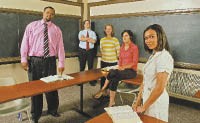 Justin Fox Burks
Justin Fox Burks
Dossier White, 21, Vanderbilt University, human and organizational development, teaching government at Kingsbury High School. “I have family here, and I was born here. I want to make a change in my own community.”
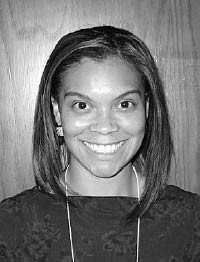
Dossier White
Katie Campbell, 22, Bryn Mawr College, political science, teaching special education at Georgian Hills Elementary School. “Memphis was my first choice because I want to be part of a city that is engaged, hopeful, and proactive not only in education but in building a stronger community.”
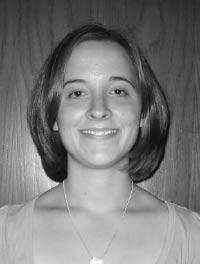
Katie Campbell
Rachael Szydlowski, 24, Bluffton College, psycholgy/sociology, MAIA from Ohio University in Southeast Asian Studies, teaching language arts at Soulsville Charter School. “I liked the idea of a city that didn’t feel overwhelming or overbearing.”

Rachael Szdlowski
Timothy Flowers, 23, Wabash College, French and political science, teaching at Soulsville Charter School. “I was looking for a community the exact opposite of the small, 100 percent Caucasian farming community [Cicero, Indiana] I am from. I wanted something more cosmopolitan.”
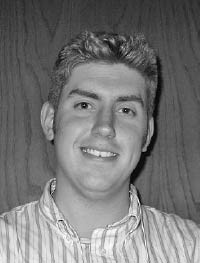
Timothy Flowers
Ira Leeds, 22, Princeton University, politics, teaching biology at Kingsbury High School. “Memphis is the perfect combination of big city and small town.”
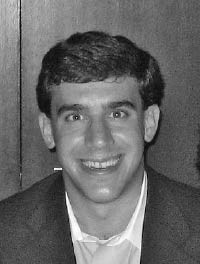
Ira Leeds
Tim Ware, 30, Cedarville University, history, teaching history at Frayser High School. “Memphis was attractive to me in light of the culture and the rich history of civil rights activism here.”
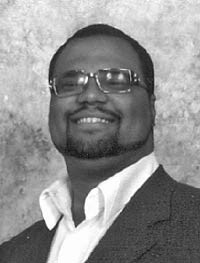
Tim Ware
Shelby Rohrer, 22, University of Minnesota, psychology, teaching math at Hamilton Middle School. “I had never been to Memphis, but my preconceived notion was that it was a big city that had more of a small-town feel.”